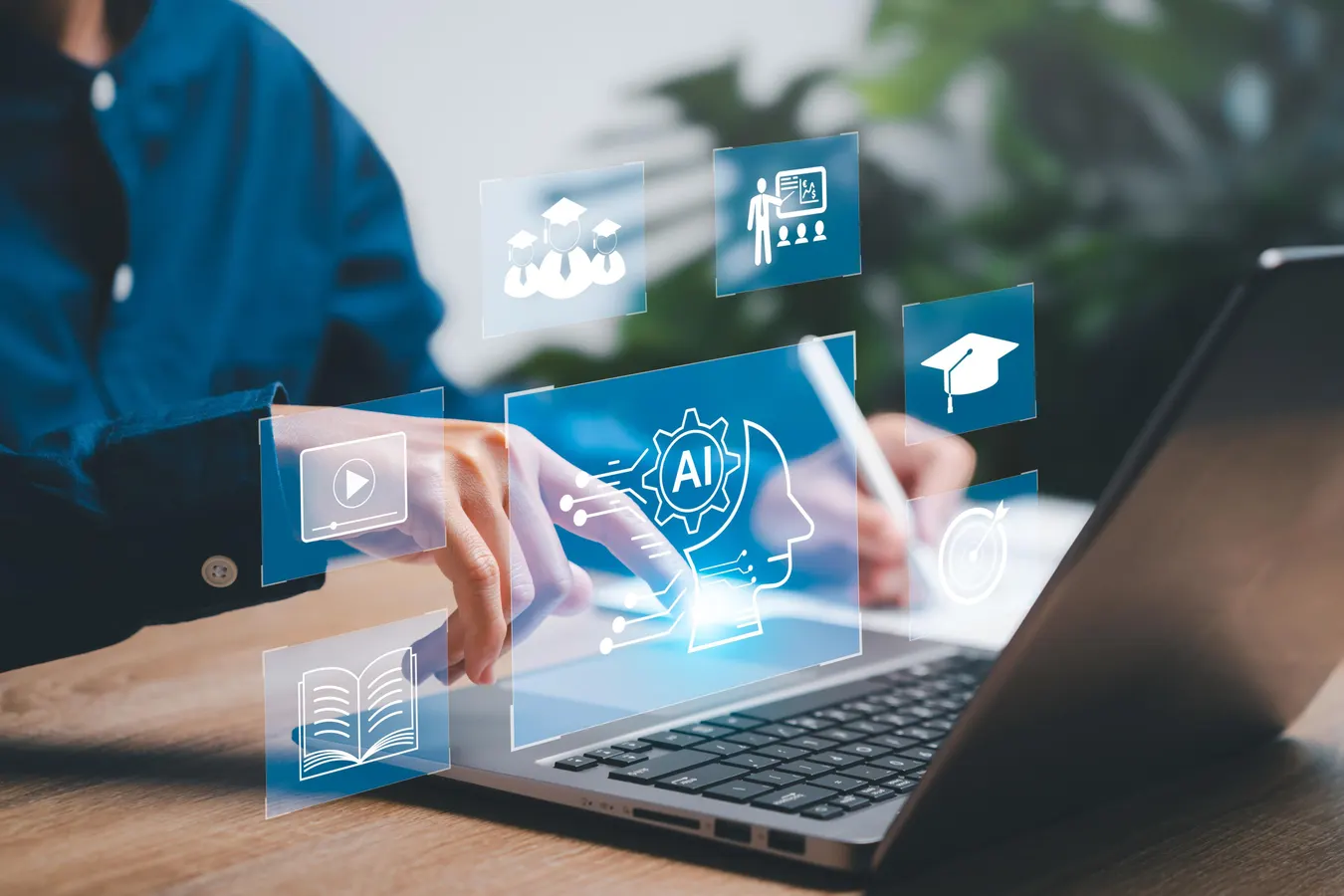By Andrew Fennell Contributor
In 2025, AI has gone beyond just handling routine tasks; it’s beginning to step into management roles. From assigning work to assessing performance and even influencing promotions, artificial intelligence is fast becoming a decision-maker. For employees, this changes everything. You’re no longer just collaborating with AI: you might soon be reporting to it.
Here’s how AI is reshaping the way we’re managed, and what you can do to thrive under its watch.
1. From tool to team lead: how AI is managing people
Until recently, AI was a behind-the-scenes tool. But now, it’s being used to monitor productivity, assign tasks, and even decide who gets promoted – or let go. In both the UK and globally, companies are experimenting with systems that analyse employee behaviour and automate management decisions – and a recent report found 94% of managers use AI to make decisions on hiring, firing, and promotions.
This shift marks a turning point. Instead of receiving feedback from a human manager, many workers are now seeing their performance rated and reported by software. In some organisations, AI is even setting goals and tracking progress across entire teams.
Employees are adapting quickly. In fact, recent data shows employees are outpacing their leaders in AI adoption – a sign that frontline workers are eager to understand the tools that are evaluating them.
MORE FOR YOU
2. Meet your new manager: software that watches, scores, and reports
Modern AI systems are no longer passive dashboards. They’re increasingly “agentic,” capable of managing workflows – and 78% of UK companies already use agentic AI to do just that. These tools can schedule tasks, issue reminders, summarise meetings, and assign next steps – acting more like digital team leads than assistants.
In some companies, AI usage itself is becoming a performance metric. Employees who regularly use tools like AI copilots or workflow automation platforms are being recognised for adaptability and innovation.
3. Why companies love AI bosses
It’s easy to see why employers are embracing AI as a management tool. Software doesn’t get tired, play favourites, or forget deadlines. AI can track dozens of performance signals at once, ensuring that nothing is missed – and that decisions appear “data-driven.”
This kind of oversight helps companies reduce bias, standardise evaluations, and deliver feedback more consistently. And because employees are already embracing AI more actively than leadership, companies see an opportunity to build a culture of tech-driven productivity from the bottom up.
As this Forbes article explains, Zoom is pioneering AI tools that act like digital project managers – assigning tasks and streamlining workflows without human input. These innovations mark a shift from AI as assistant to AI as supervisor.
In 2025, AI is no longer just a tool – it’s increasingly managing performance, assigning tasks, and … More reshaping what it means to be supervised at work.
4. The hidden costs: stress, surveillance, and burnout
But there’s a downside to AI-led management. Many employees report feeling micromanaged or unfairly evaluated by systems that lack context or empathy. The sense of being constantly monitored can lead to anxiety and burnout.
UK reports link digital surveillance to mental health issues, with some organisations accused of overreaching through so-called “bossware.” These monitoring tools – from screen time trackers to keystroke analytics – may offer insights, but without clear boundaries, they risk damaging trust.
While data might be objective, its interpretation often isn’t. And without human judgement to balance it, AI oversight can feel cold and rigid, or even punitive.
5. Why workers aren’t powerless
Not all AI oversight is negative. In some cases, employees benefit – especially where AI supports self-appraisals or helps managers assess contributions more objectively. Used responsibly, these systems can offer clearer benchmarks and reduce unconscious bias.
Still, governance matters. Right now, only a third of European organisations have formal AI policies in place, raising concerns about transparency and fairness. Workers need clarity on what’s being tracked and how it’s evaluated: and whether they can challenge AI-driven decisions.
The good news? More professionals are becoming proactive – upskilling in AI, asking questions, and shaping how these tools are used within their organisations.
6. Skills AI still can’t manage – human strengths to cultivate
AI can track your performance, but it can’t replicate your emotional intelligence. Empathy, creativity, negotiation, and cross-functional collaboration remain out of reach for even the most advanced systems.
UK business leaders remain cautious about AI’s role in performance evaluation, especially when it comes to soft skills. Most still want human oversight in assessing leadership, interpersonal dynamics, and strategic thinking.
That’s where employees can shine. Your ability to build trust, resolve conflict, and lead teams is more important than ever. In a workplace filled with algorithms, these human strengths will set you apart.
7. How to thrive under AI supervision
You don’t need to fear AI management – but you do need to adapt. Here’s how to stay competitive:
Understand how you’re being evaluated – Learn what data AI tools collect and how it’s used.
Master AI fluency – Use the tools well, train your team, and position yourself as a digital leader.
Keep human connections strong – Managers may rely on AI reports, but people still make the final calls.
Lead with soft skills – Emotional intelligence and collaboration can’t be automated.
Push for transparency – Ask your organisation about AI policies. If none exist, it’s time to advocate for them.
AI isn’t just changing how we work – it’s changing who we work for. As algorithms begin making decisions once reserved for human managers, employees must rethink how they add value. Those who embrace AI while doubling down on their human edge will be best placed to thrive in the new world of work – where your next boss might not blink, but it will definitely be watching.
Editorial StandardsReprints & Permissions
